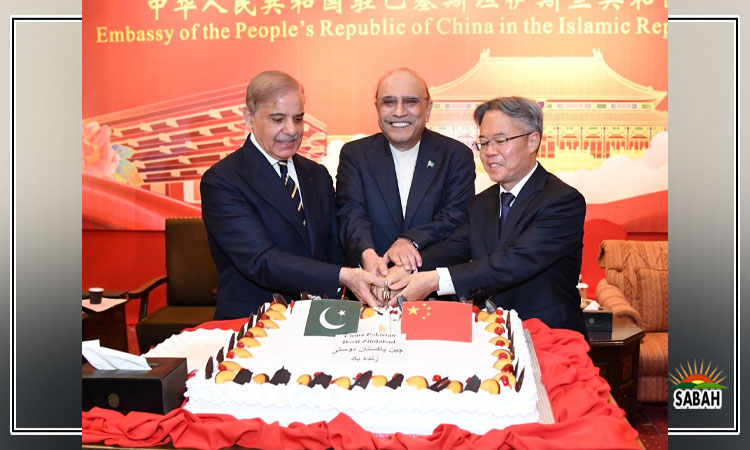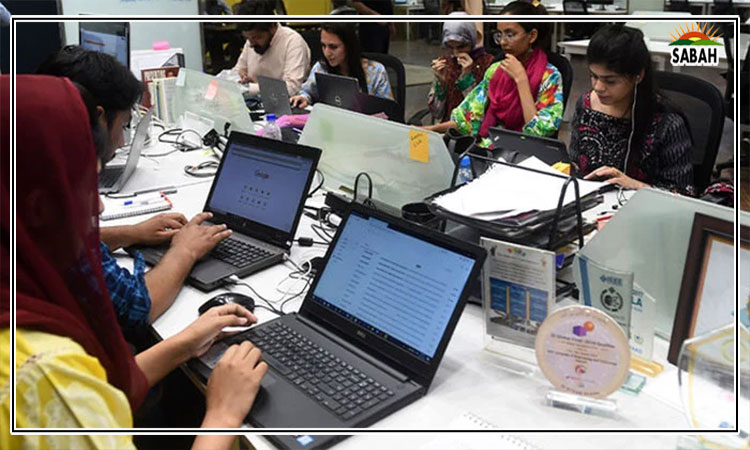A positive startup ecosystem …..Mikaal Aziz
The startup ecosystem in Pakistan is at a critical juncture, presenting a unique blend of challenges and opportunities. With a young, tech-savvy population, increasing internet penetration and a growing middle class, the conditions are ripe for innovation and entrepreneurship.
However, the road to establishing a successful startup in Pakistan is fraught with obstacles, ranging from regulatory hurdles to limited access to capital. This article explores the key elements necessary for nurturing startups, the potential that exists within the Pakistani market, and the success stories that are paving the way for future entrepreneurs.
A successful startup ecosystem is built on several foundational pillars, including access to capital, a supportive regulatory environment, mentorship, and a culture of innovation. In developed economies, these elements work in tandem to create an environment where startups can flourish. For Pakistan to fully realize its potential as a hub for innovation, these pillars must be strengthened and adapted to the local context.
One of the most significant challenges facing startups in Pakistan is access to capital. Venture capital (VC) and angel investment are relatively new concepts in the country, and while there has been progress in recent years, the funding ecosystem is still in its nascent stages. Traditional banks are often reluctant to lend to startups due to perceived risks, leaving entrepreneurs with limited options for financing their ventures.
To address this, the government, private sector, and financial institutions need to work together to create more funding opportunities for startups. This could include establishing dedicated startup funds, providing tax incentives for investors, and encouraging the growth of local VC firms. Additionally, platforms that connect startups with global investors can help bridge the gap, enabling Pakistani startups to tap into international capital markets.
A supportive regulatory environment is crucial for the growth of startups. In Pakistan, the regulatory landscape can be challenging, with bureaucratic red tape and complex procedures often hindering the ease of doing business. Streamlining business registration processes, simplifying tax compliance, and reducing the cost of starting a business would go a long way in fostering a more conducive environment for startups.
Moreover, the government could consider implementing policies that specifically support tech startups, such as offering tax breaks on research and development (R&D) and providing grants for innovative projects. Establishing special economic zones (SEZs) dedicated to technology and innovation could also provide startups with the necessary infrastructure and resources to thrive.
Mentorship is another critical component of a successful startup ecosystem. In Pakistan, the startup culture is still developing, and many entrepreneurs lack the guidance and expertise needed to navigate the challenges of building a business. Programs that connect experienced business leaders with budding entrepreneurs can provide invaluable insights and support.
Educational institutions also play a vital role in fostering an entrepreneurial mindset. Universities and technical institutes in Pakistan must integrate entrepreneurship into their curricula, offering courses on business development, innovation, and technology management. By cultivating an entrepreneurial spirit from an early stage, the country can build a pipeline of future innovators who are equipped with the skills needed to succeed in the startup world.
Technology is a driving force behind the success of many startups globally, and Pakistan is no exception. The rapid advancement of digital technologies, coupled with increasing internet penetration, has opened up new avenues for entrepreneurs. Startups in sectors such as fintech, e-commerce, and health tech are leveraging technology to solve local problems and create scalable business models.
For instance, Vektor, a startup founded by me (this writer), is pioneering the development of large-scale 3D printers in Pakistan. By focusing on cutting-edge manufacturing technology, Vektor is not only setting new standards in additive manufacturing but also undertaking an ambitious project to build Pakistan’s first Formula 1 car. This venture highlights the potential for technology-driven startups to make significant contributions to the country’s industrial and technological advancement.
Similarly, startups like Bykea have transformed the transportation and logistics sectors in Pakistan by harnessing mobile technology. Bykea, a ride-hailing and delivery service, has revolutionized urban mobility, providing affordable and convenient transportation options. These startups demonstrate how technology can be leveraged to address critical infrastructure gaps in the country.
While the potential for startups in Pakistan is immense, several challenges need to be addressed to build a sustainable ecosystem. Access to talent, for example, remains a significant hurdle. Although Pakistan has a large pool of young graduates, there is often a mismatch between the skills they possess and the needs of the startup industry. Bridging this gap requires a concerted effort from educational institutions, industry players, and the government to align curricula with market demands and provide practical training opportunities.
Furthermore, the cultural perception of entrepreneurship in Pakistan is still evolving. Traditionally, stable employment in established companies or government positions has been preferred over the risks associated with starting a business. Changing this mindset requires creating more success stories that inspire the next generation of entrepreneurs. Highlighting the achievements of startups like Bykea and others can help shift public perception and encourage more individuals to pursue entrepreneurial ventures.
Another key factor in building a sustainable startup ecosystem is fostering collaboration between different stakeholders, including the government, private sector, academia, and non-profit organizations. Collaborative initiatives such as startup incubators, accelerators, and innovation hubs can provide startups with the resources, mentorship, and networking opportunities they need to succeed. For example, organizations like Plan9, the Punjab Information Technology Board’s (PITB) technology incubator, and NIC Karachi are playing pivotal roles in supporting early-stage startups in Pakistan.
The future of startups in Pakistan is promising, but realizing this potential will require strategic efforts to address the existing challenges and capitalize on the opportunities. Key areas of focus should include enhancing access to capital, fostering a supportive regulatory environment, and building a culture of innovation through education and mentorship.
Investing in technology and infrastructure will also be crucial for the growth of startups. By embracing digital transformation and encouraging innovation, Pakistan can position itself as a competitive player in the global startup ecosystem. The success of tech-driven startups serves as a testament to the impact that technology can have on traditional industries, and similar ventures should be encouraged and supported.
Moreover, as the startup ecosystem matures, there is an opportunity to focus on sectors that have the potential to drive significant economic and social impact, such as agriculture, education, and healthcare. Startups that address critical issues in these areas can contribute to the broader development goals of the country while creating sustainable business models.
Pakistan’s startup ecosystem is at a pivotal moment. With the right support and strategic initiatives, the country has the potential to become a hub for innovation and entrepreneurship in the region. By addressing the challenges related to capital, regulation, talent, and culture, Pakistan can create an environment where startups not only survive but thrive.
The stories of local startups illustrate the incredible potential that exists within Pakistan’s entrepreneurial landscape. As more success stories emerge, they will inspire a new generation of entrepreneurs to take risks, innovate, and contribute to the country’s economic growth. With continued investment in technology, education, and collaboration, the future of startups in Pakistan looks brighter than ever, paving the way for a new era of innovation and progress.
The writer is a freelance contributor.
Courtesy The News












